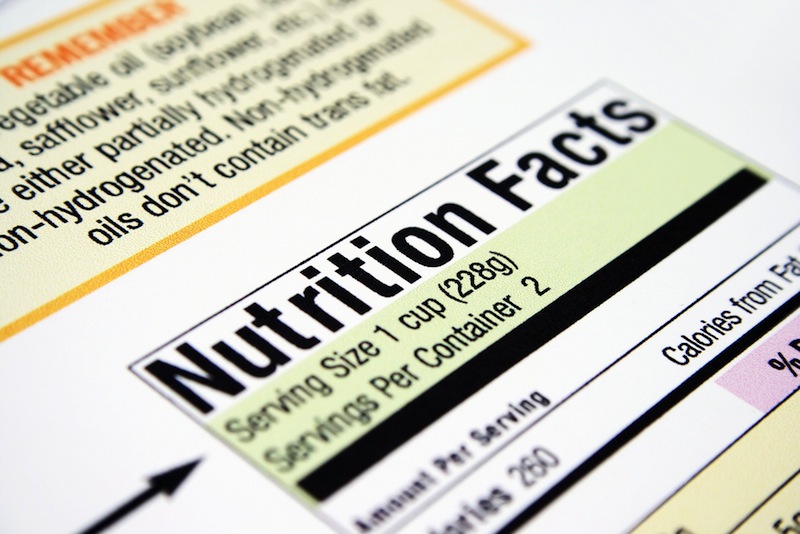As a mother of two small kids, I look at food labels all the time. My top two concerns are sugar content, especially in juices, and types of fat in everything.
As a farmer in Vermont, I’m worried that a senseless food label will ultimately put our family farm out of business; a family farm with a 70-year legacy we are continuing.
My state is about to become the first in the country to require cautionary labels on food with genetically modified ingredients. Our lawmakers approved the measure last year with the governor quickly signing it into law. In April, a federal judge refused to halt it, despite an active lawsuit. The regulation is scheduled to take effect in July of 2016.
My husband and I operate a 50-cow dairy farm in northeast Vermont. About a third of our animals started out as my 4-H project when I was nine years old. We rent land from relatives, grow hay for our own use and to sell, and market jersey beef and composted manure locally.
In other words, we’re doing everything we can to make ends meet on our small farm that’s economically and environmentally sustainable. Our ultimate dream is to pass down a viable farm to our kids, when they’re old enough to take over.
The odds of this happening decrease if mandatory GM labeling laws become standard in Vermont and around the country. Instead, they’ll likely eventually run us out of business. That may sound like a big jump from a few words on a label, but this regulatory movement demonizes a safe technology that we need to carry on.
Biotechnology is a tool that helps us provide good, safe food at a reasonable price. Our cows eat about 16 tons of grain per month and current GM feed costs are about $300 per ton, leaving our total feed bill at $5,000 per month. If we had to switch to non-GM sources, our monthly feed costs would almost double; depending upon whether there is enough “non-GMO” grain to purchase. Otherwise, our alternative would be organic grain which would more than double our feed costs. (Because we have chosen not to be organically certified, we would not receive an organic milk price.)
If that happened, mandatory GM labels would bankrupt us. We’d lose our farm.
Even worse, our loss would be no one else’s gain. All over the world, scientists have studied GM foods—and they’ve come to a clear consensus that these products are safe and healthy to eat. Slapping labels on biotech food is an exercise in futility, not giving enough information to consumers about genetic engineering but devastating the small family farmers like us who try to supply their food.
In the near term, we’re protected from this inconsistency. Vermont’s labeling law exempts dairy products, so we won’t be forced to change the way we feed our animals.
Yet for how long would we enjoy this safe harbor? Vermont’s dairy industry likely won its exemption because we account for about two-thirds of our state’s agricultural income. This isn’t true elsewhere. Legislators in Massachusetts and Rhode Island don’t have nearly the same incentive to exclude dairy products from their rules. If they decide to jump on a labeling bandwagon, their restrictions most likely will affect our farm. Like most farmers in New England, we sell across state lines.
Vermont’s law is in fact riddled with contradictions. It applies to packaged and processed foods, but not if they contain meat. So a can of vegetable soup with GMOs would carry a label but a can of vegetable soup that adds beef to the same set of ingredients would not. The law also exempts restaurant food, so a pizza delivered to your home would not carry a label but the same pizza sold frozen in a grocery store would.
If GM laws spread, these odd exceptions will fall away. In time, labeling laws will cover everything—including dairy farms in Vermont. For now, the sheer volume and patchwork of regulation creates burdensome compliance pressure for no sound health or environmental concern.
I’m not just worried about my farm, but also about my neighbors who don’t farm. We live in a relatively poor area. At our local elementary school, four out of every five kids qualifies for a free or reduced-price lunch.
GM food labels will make life harder for them and their families. Economists say that GM food labels will drive up an ordinary family’s food bill by $400 or $500 per year – that’s the equivalent of an apple a day for the entire year. The people who least can afford this hit – my community – will suffer the most.
We should have sensible food labels that convey useful information to mothers and everyone else in grocery stores—not pointless ones that hurt farmers, relay superficial information and make it more expensive for everyone to feed their families.
Joanna Lidback and her husband operate the Farm at Wheeler Mountain, a diversified dairy farm in Vermont. Joanna volunteers as a board member for Truth About Trade & Technology (www.truthabouttrade.org).
Follow us: @TruthAboutTrade and @World_Farmers on Twitter | Truth About Trade & Technology on Facebook.


